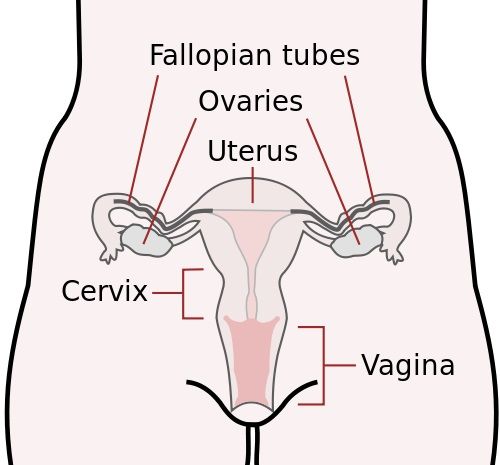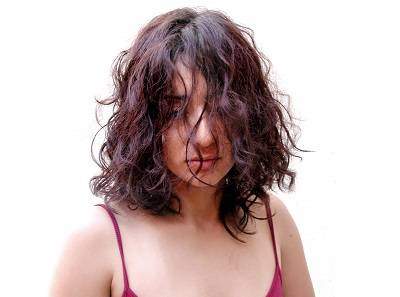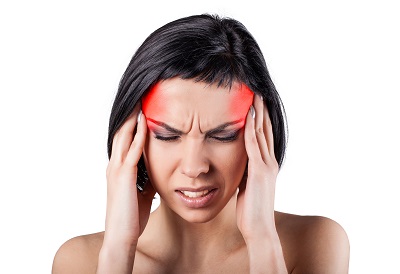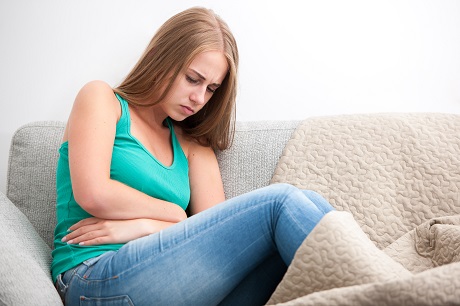Hormones in women play a critical role in women’s health, mood and reproductive power. So it’s no surprise that during the menstrual cycle, a woman’s body goes through many changes ruled by these hormones. A woman’s hormones can not only affect the body physically but also mentally. If you’re a woman, you probably know all about this and how your menstrual cycle affects you in many ways. Even when you aren’t menstruating, your hormones can still have a massive effect on your life.
When a healthy female baby is born, she already has all of the eggs inside of her that her body will use during her menstrual cycle. These eggs are stored inside of the ovaries. When puberty arrives, a girl begins to produce hormones. These hormones will cause her eggs to mature in readiness for pregnancy.
It is the hormones in the hypothalamus which will regulate many processes of the body, including libido, sleeping patterns, hunger, thirst and the endocrine system. The hypothalamus, which is a gland in the brain, releases a chemical, called the “Follicle Stimulating Hormone Releasing Factor”, which tells the pituitary gland to begin its job. This gland, which is also found in the brain, releases its own hormones, called the “Follicle Stimulating Hormone”, as well as something called the “Leutenizing” hormone which goes to the ovaries and signals the follicles, which are home to a woman’s eggs, to mature.
As the follicles begin to mature, they release their own hormone, one you have probably heard a lot about already, called estrogen. As the follicles which house the eggs mature over a period of about a week, they continue to release more estrogen hormones into the blood. The estrogen hormones cause a woman’s uterus lining to begin to thicken and the mucous in that area to change as well. As the estrogen is released, it causes the hypothalamus to release the “Leutenizing Hormone Releasing Factor” hormone, and from the release of that hormone, the pituitary is signaled to release huge amounts of “Leutenizing” hormone. This surge of hormones cause the follicle which is most ready to break open and release the egg it was housing in a process which is called ovulation.
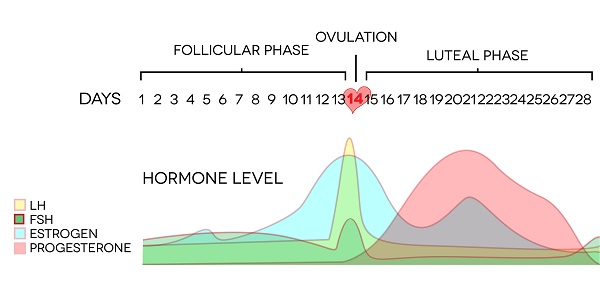
Just before ovulation, blood supplies to the ovaries increase, which pushes the fallopian tube and ovary closer together, which allows the egg to find its way into the fallopian tube. Prior to ovulation, the cervix will release a clear mucous which is referred to as “fertile mucous”. This mucous is meant to help the sperm reach the egg more quickly and easily.
When the egg is released in the fallopian tube, it is moved along by tiny projections, which look a bit like hairs. These are called “cilia”. The cilia will carry the egg to the uterus, where fertilization can happen if there is also sperm present.
In the middle of the menstrual cycle, a part of the cycle which occurs before menstruation begins, the follicle which houses the egg bursts. The process of healing of this follicle releases estrogen and progesterone. Though estrogen and progesterone are often called female hormones, men do also have these same hormones, but in lesser quantities. The same is true for what one considers the typical male hormone, testosterone. Women do have some of this hormone, just less of it.
The hormone progesterone causes the lining of the uterus to cover itself with mucous. If fertilization of the eggs does not occur, the arteries of this lining close, which stops blood from flowing to the lining and causes the blood to pool. This is the blood that makes up a woman’s menstrual flow. The blood flows from the uterus and vagina for a period which typically lasts from 3 to 8 days. The length of the period can change over the course of a woman’s life. The same can be said for a woman’s blood flow during menstruation, it can be greatly affected by the amount of hormones she has released during her cycle.
The hormonal cycle during the pre-menstrual part of the cycle can cause many physical signs, most often including a slightly higher temperature and cramping pain in the pelvic area. Other possible physical effects of menstrual cycle hormones include bloating, back pain, nausea, constipation, headaches, irritability, breast tenderness, changes in mood and even diarrhea. However, the hormones can also have positive effects, including increased energy, better sex drive and euphoria.

